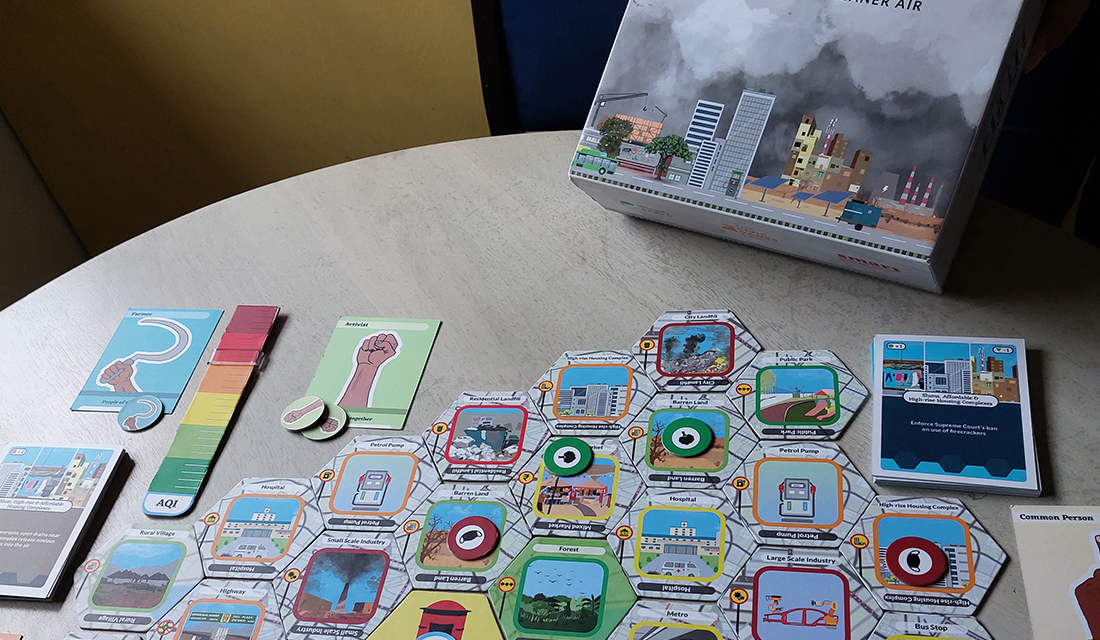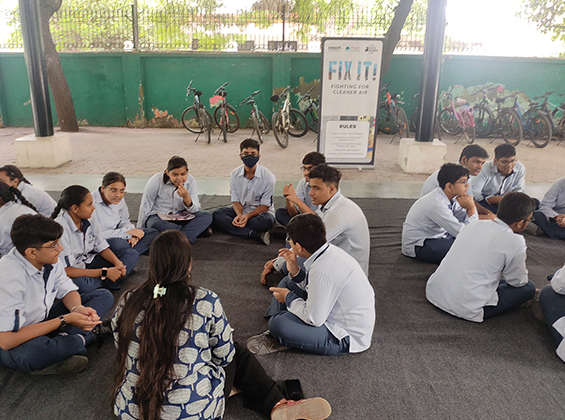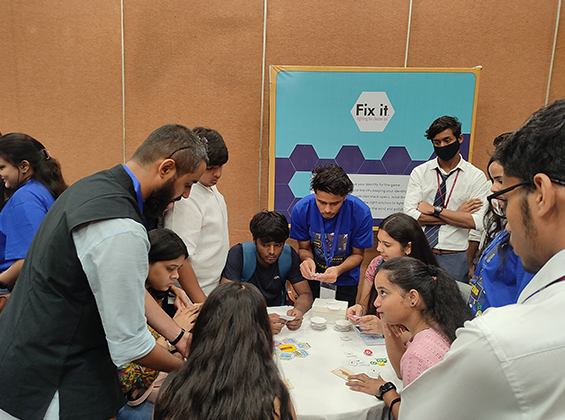
A City-building Game that Captures the Pressing Issue of Air Pollution
There is little doubt that air pollution is a complex issue with multiple emission sources deeply enmeshed with rapid urbanization. These sources include vehicular pollution, construction and dust, manufacturing and small-scale industry promotion, use of fossil fuels, power generation, biomass burning, and conventional forms of agriculture. Air pollution has a debilitating impact on public health, the economy, climate change, and the environment.
While it is predominantly regarded as an urban issue, there is growing recognition that it dispels devastation over more expansive geography and rapidly rises in smaller towns as they grow. 93% of India lives in areas below the WHO safety standards. We believe that to bring about change, short-term policies and knee-jerk reactions should be replaced by a long-term sustainable alternative to peoples’ lives and lifestyles, urban governance, infrastructure, power generation, and public transport with people’s participation. Educating, sensitizing, and providing a vocabulary of these issues and solutions to the younger generation is essential. Deliberate long-term strategies, build sustainable solutions, and prioritize the planet's prosperity over short-term needs.
Toward this end, Wingify Foundation collaborated with Civic Games Lab (CGL) and SMART NGO in developing a board game on air pollution to highlight the dynamics, plan, and need for addressing climate change and air pollution on a priority basis.
| How to play FixIt Game | |||
|---|---|---|---|
What do we aim to do?
This project aims to develop a city-building game on air pollution – a collaborative simulation wherein players adopt roles, engage with the demands of society, understand how to negotiate with others, and work together to keep the AQI levels as low as possible. Through this project, we intend to build a vocabulary of issues and challenges regarding air pollution, understand the limits to decision-making, and the importance of agency while negotiating the structures in place. We aim to enable players to look at the issue from an alternative prism – listen to perspectives and opinions contrary to their own, make decisions, imbibe good practices, and find pathways they can carry forward in their own lives.
The game development process is rooted in research. It began with a comprehensive survey of literature to assimilate, understand and analyze the pre-existing research on air pollution. This literature is the foundation for developing research questions for expert interviews and designing baseline surveys for the general population. The gathered information is then leveraged to inform the design of the game. Multiple prototypes and playtests guide the development of the game mechanics to improve and finalize the game elements. Based on the playtest outcomes, the game is re-edited, re-designed, and evolved for finalization. Once finalized, the game is activated for the target audience.
Our Interventions
The end goal of this project was to create a board game on Air Pollution. For this, various activities have been undertaken. A crucial first step was research which involved a survey of the literature, interviewing experts, and a baseline survey. Once the research was synthesized, prototyping began with brainstorming game elements, creating mood boards for visualization, and exploring game mechanics. Prototype 1 was completed after a preliminary design of each element was ready for testing. Playtesting involved field experts to ensure that the game captured the essence and complexity of air pollution. The insights, suggestions, and feedback from these playtest were incorporated into the game design to create prototype 2 taking us closer to game finalization and printing.
Project Activities
- Survey of literature, stakeholder mapping
- Prototype 1 of the Air pollution game
- Prototype 2 of the air pollution game
- Final Product – FixIt game
- School Activation
Impact we expect
Our game functions as a tool to raise awareness; hence the change we aim to bring about is to sensitize all possible stakeholders about the complex issue of air pollution through an engaging medium.
The impact this game intends to have is two-fold. Firstly, it aims to enable the players to look at the issue of air pollution from an alternate perspective. This will help them consider the opinions and experiences that are in stark contrast to theirs and consider them while making decisions and shaping their own lives.
Secondly, the game will act as a means to develop the players’ vocabulary on the realities of air pollution. Through it, we want to build awareness and encourage players to speak up about the dangers of air pollution and actively mitigate it, recognizing limits to decision-making and understanding the importance of agency while negotiating the structures in place.
Project outcomes
- The game activation journey began on 27th September 2022 and was completed on 11th November 2022, wherein 25 gameplays were held across schools and universities. Over these six weeks, the game was played by 600+ students.
- Parents and students expressed a desire to purchase the game, enjoyed that the game requires them to think, interact and negotiate with their fellow players, and could follow and grasp the game mechanics quickly.
- When asked what the key takeaways from the game were, they were able to recall the complete form of AQI, its purpose, the interaction of various projects in the city, the role of wind direction on air pollution, how our personal choices impact the kind of city we build and in turn.
- The students were so engaged in the game that the schools requested us to leave game boxes in the school for other students to play and learn from.
- We have also made the ‘How to play FixIt game video’ both in English and Hindi for the people who will play this game for the first time.
Links - https://youtu.be/OeL8wPqeOK4 , https://youtu.be/SyeYOvR12eo

